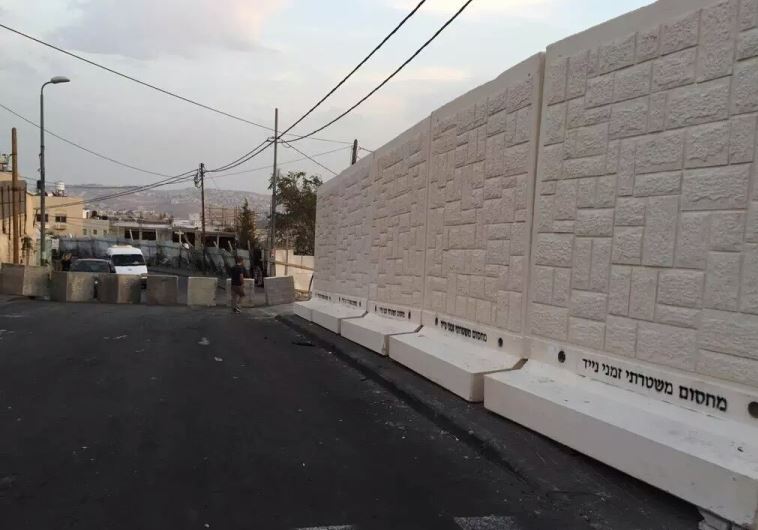Police remove wall at entrance to Jebl Mukaber
Roadblocks, checkpoints remain in J’lem neighborhood; Police arrest 15 in overnight raids, rioter shot in leg.
 Installing of temporary wall between Armon Hanatziv and Jebl Mukaber in Jerusalem(photo credit: SHLOMO MOR)
Installing of temporary wall between Armon Hanatziv and Jebl Mukaber in Jerusalem(photo credit: SHLOMO MOR)